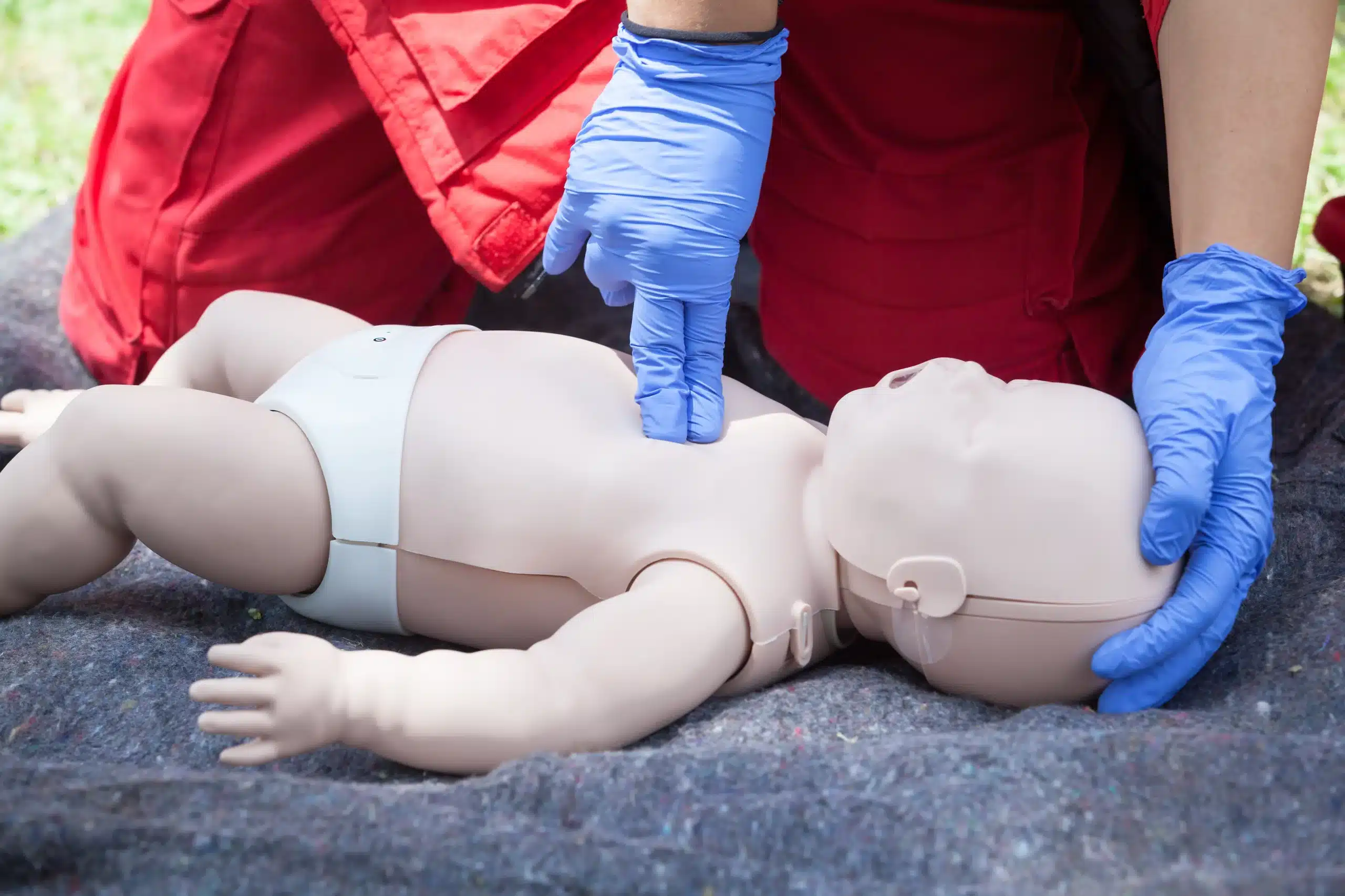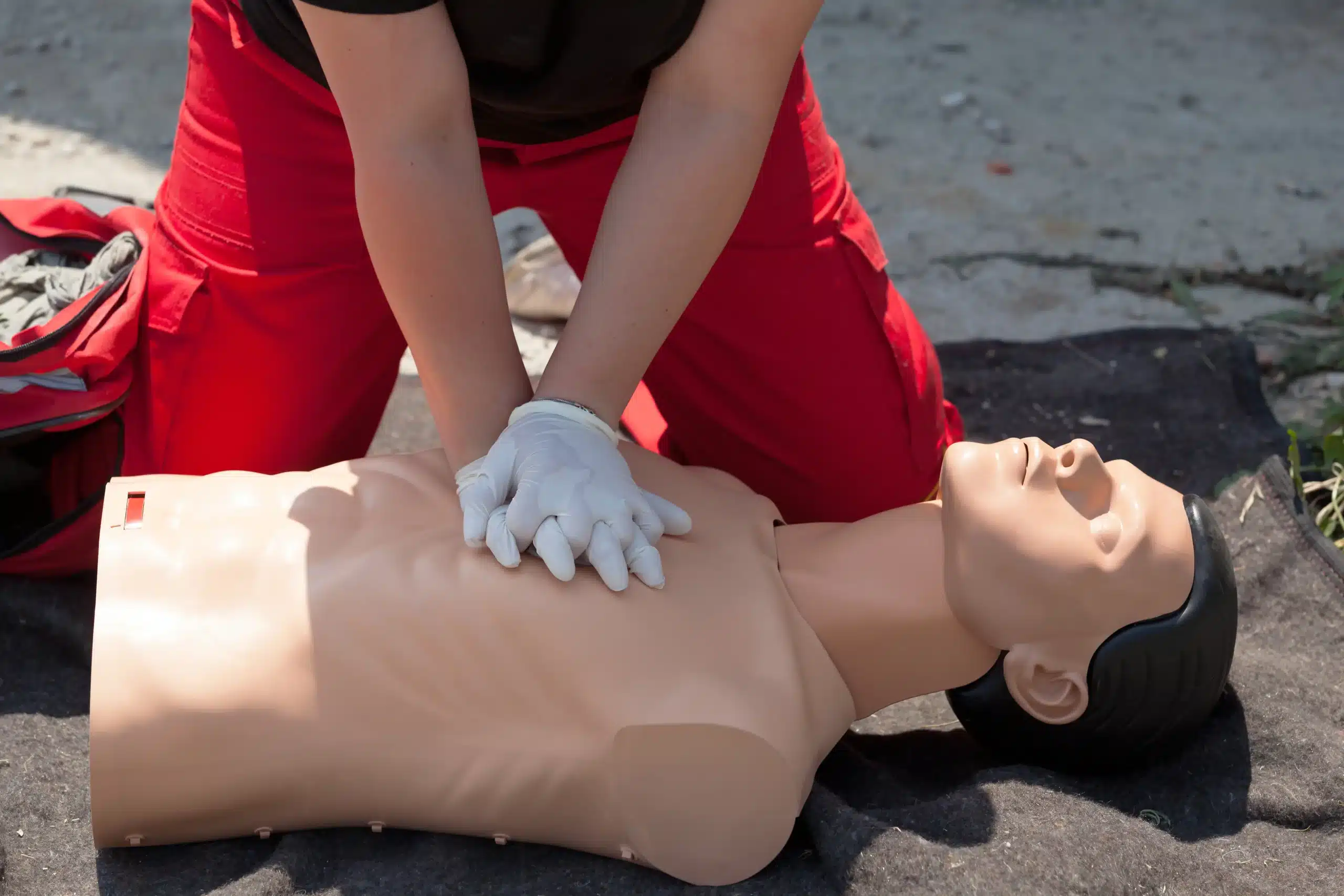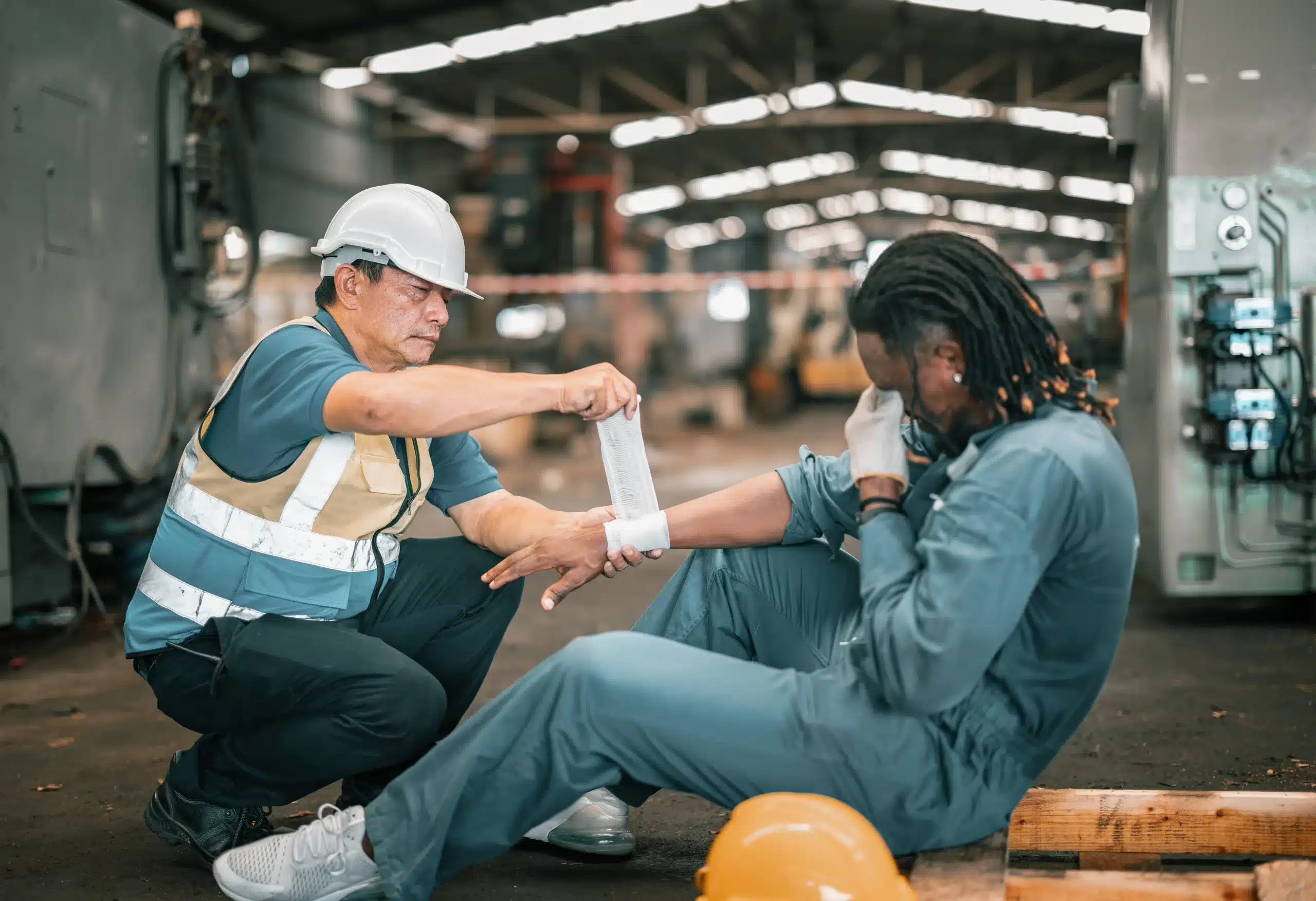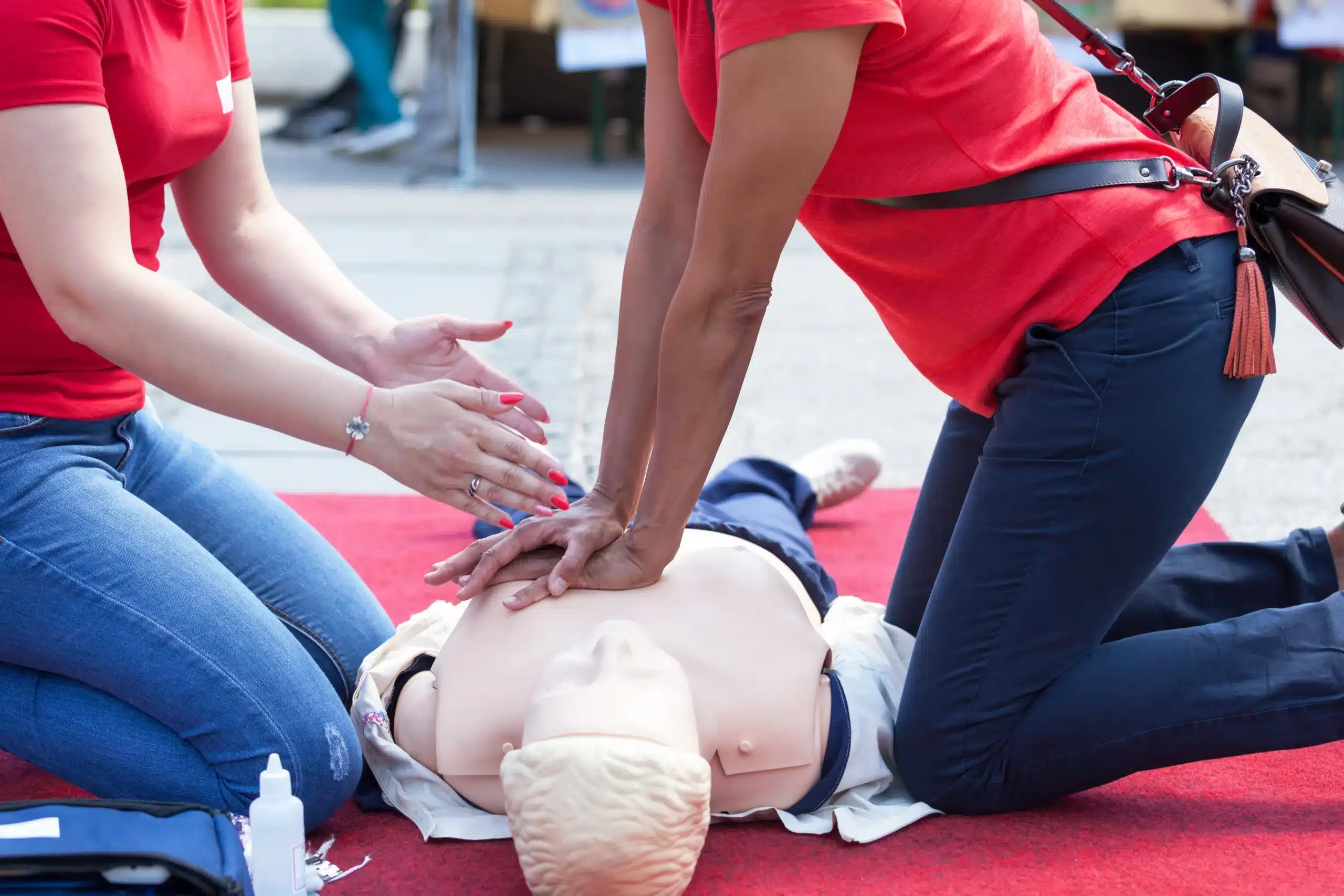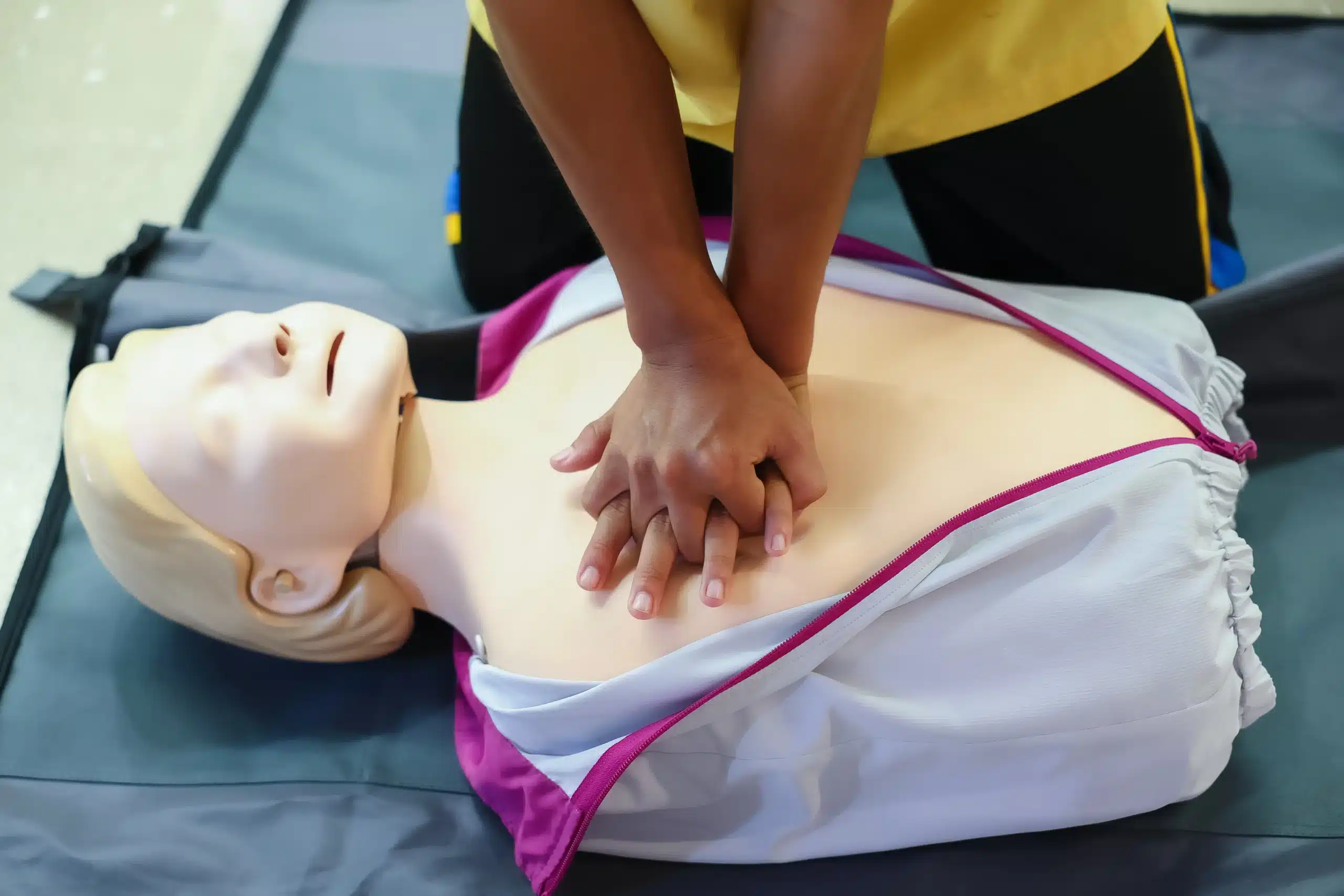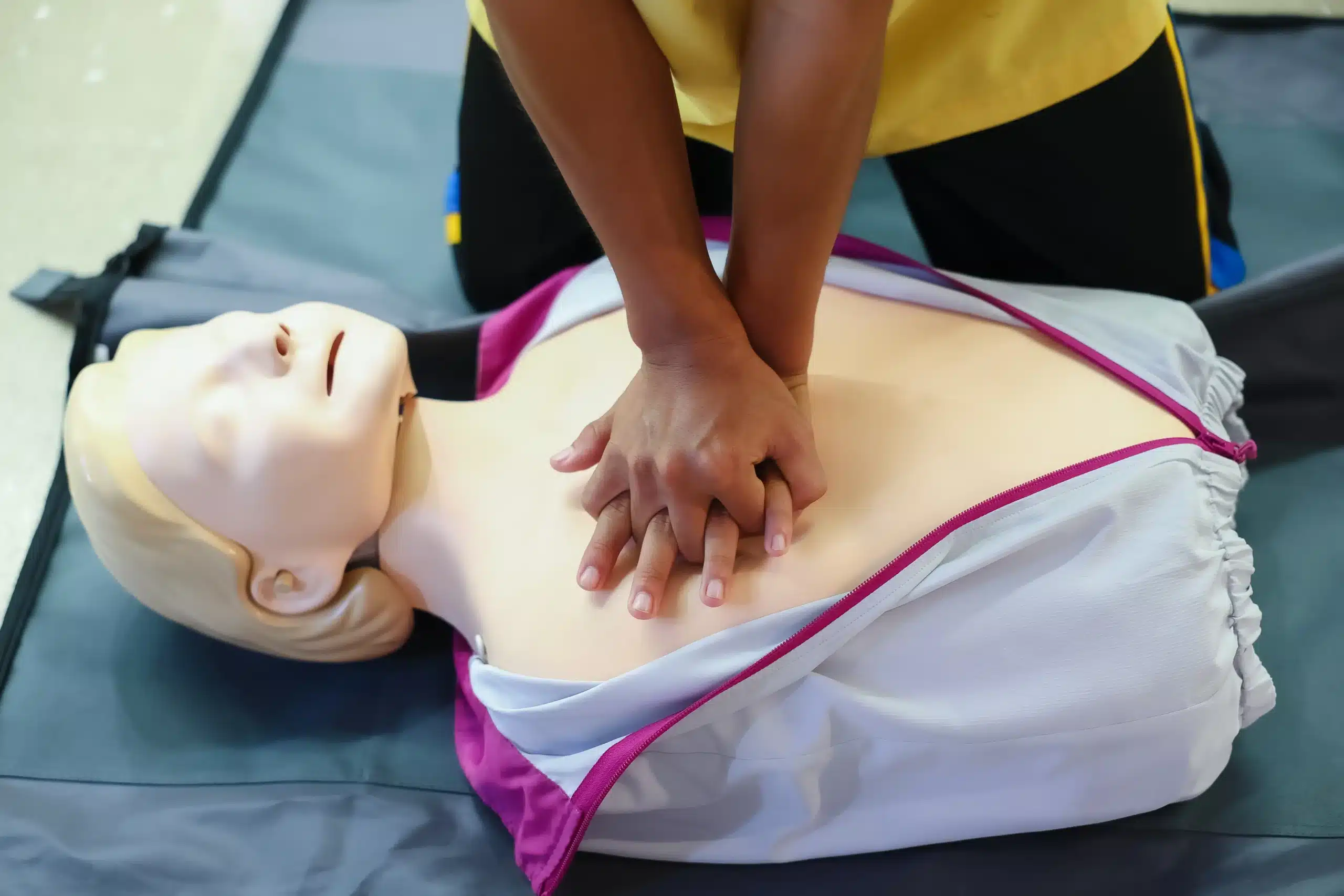Life-saving skills shouldn’t come with a hefty price tag. CPR renewal is essential for anyone certified in CPR, but cost can be a barrier. This guide focuses on finding CPR renewal low cost options without compromising quality. We’ll cover the factors that influence CPR renewal costs, compare online and in-person training, and offer practical tips for saving money. Whether you’re a healthcare professional looking for convenient renewal options like the RQI program or a community member seeking basic CPR recertification, we’ll help you find the right course at the right price.
Key Takeaways
- CPR renewal keeps your skills sharp and your certification current. Find a program that fits your learning style and budget, whether it’s online, in-person, or a blended approach. Look for reputable providers like Safety Training Seminars or national organizations such as the American Red Cross and the American Heart Association.
- Cost-effective CPR renewal is within reach. Explore options like group discounts, seasonal promotions, and special rates for students and first responders. Compare prices from different providers, including local training centers and online platforms, to find the best value.
- Renewing your CPR certification benefits you and your community. It strengthens your resume, prepares you for emergencies at home and in public, and empowers you to potentially save a life. Choose a program that aligns with nationally recognized guidelines and offers comprehensive instruction.
What is CPR Renewal and Why is it Important?
CPR renewal keeps your CPR skills and knowledge fresh. It’s a refresher course covering the latest life-saving techniques and guidelines from organizations like the American Heart Association. Think of it as a software update—you’re installing the newest version of life-saving know-how.
Why stay current? CPR techniques evolve with new research and best practices. Regular CPR renewal prepares you for real emergencies, reinforcing the muscle memory and critical thinking you need to perform CPR confidently and correctly. Knowing you have the most current skills can make all the difference under pressure. Plus, most certifications expire after two years, so renewal maintains your credentials and demonstrates your commitment to high-quality care. Whether you’re a healthcare professional, a concerned citizen, or somewhere in between, staying certified shows you’re ready to help when needed. CPR renewal isn’t just a formality; it’s about being prepared to make a real difference.
How Much Does CPR Renewal Cost?
CPR renewal is an essential investment in your skills and ability to respond to emergencies. Understanding the factors that influence costs can help you budget effectively and find the best value for your training.
Typical Prices for Different Courses
CPR renewal costs vary based on several factors. Basic CPR recertification courses can start as low as $9.95, with discounts often available for group bookings. More advanced certifications like ACLS (Advanced Cardiovascular Life Support) or PALS (Pediatric Advanced Life Support) typically range from $40 to $250 for community members. Instructor-level courses usually command higher prices, around $300–$400. It’s always a good idea to check directly with training providers like Safety Training Seminars for the most up-to-date pricing on specific courses. You can explore our BLS course options in San Jose for more details. We also offer specialized courses such as EMSA Health and Safety for California childcare providers.
What Affects CPR Renewal Costs?
Several key factors influence the overall cost of CPR renewal:
- Course Content: More advanced certifications, such as those for healthcare providers, involve more comprehensive training and specialized skills, leading to higher costs. Consider our RQI program for healthcare professionals seeking efficient renewal options.
- Course Format: In-person classes often include equipment and facility costs, while online renewal courses may offer lower prices due to reduced overhead.
- Instructor Qualifications: Highly experienced and certified instructors may command higher fees, reflecting their expertise. Safety Training Seminars is an AHA Training Center with a commitment to high-quality instruction.
- Location: Costs can fluctuate based on regional market rates and demand. Our low price guarantee ensures competitive pricing for our courses in San Jose, Santa Clara, and Sunnyvale.
- Group Discounts: Many providers offer discounted rates for group bookings, making it a cost-effective option for workplaces or community organizations. Contact us to learn more about our group discounts for CPR renewal.
By understanding these factors, you can make informed decisions about your CPR renewal training and find a program that fits both your budget and your learning needs. Remember, investing in your CPR skills is an investment in the safety and well-being of your community.
Find Affordable CPR Renewal Options
CPR renewal doesn’t have to break the bank. This section covers several cost-effective options, from local providers to well-known national organizations.
Safety Training Seminars: Your Affordable Local Option
Safety Training Seminars offers CPR renewal courses at our San Jose location, convenient for those in San Jose, Santa Clara, and Sunnyvale. We’re committed to providing high-quality, affordable training. Returning students often receive discounts on refresher courses, making it even easier to stay current with your CPR skills. View our BLS course schedule for upcoming classes in San Jose (Willow Glen). We also offer the American Heart Association’s RQI program, a convenient and flexible option for healthcare professionals. Our low price guarantee ensures you’re getting the best possible value. We also offer other important courses like EMSA Health, Safety, and Lead Poisoning training for California childcare providers.
Other Reliable Providers
You can also find CPR renewal courses through these national organizations:
American Red Cross
The American Red Cross offers CPR classes and certification nationwide, with various scheduling options to fit your needs. Their courses are known for their comprehensive material and experienced instructors.
National CPR Foundation
The National CPR Foundation offers online CPR recertification starting at $12.95. This online option makes it a particularly budget-friendly choice. They also offer group discounts, which can be helpful for businesses or community groups.
American Heart Association
The American Heart Association offers both in-person and online CPR renewal courses. While in-person training is generally more expensive, it offers hands-on practice and direct feedback from instructors. Consider your learning style and budget when choosing the best format for you. Learn more about their BLS course.
ProCPR
ProCPR provides online CPR training as a convenient and often less expensive alternative to traditional classroom courses. Their programs are typically accepted wherever CPR certification is required.
CPR Today
CPR Today offers online CPR certification that is generally less expensive than in-person classes. This can be a good option for those looking for a flexible and affordable way to renew their certification.
Online vs. In-Person CPR Renewal
Deciding how to renew your CPR certification often comes down to choosing between online and in-person classes. Both have their pros and cons, so let’s break down the key differences to help you make the best choice.
Cost Comparison
Online CPR renewal is typically less expensive than in-person training. This is because online providers have lower overhead, resulting in lower prices for students. If budget is a primary concern, online renewal is often the more economical choice. For a helpful comparison of in-person versus online CPR certification costs, check out this resource from CPR Classes St. Pete.
Quality and Effectiveness
While online CPR courses are convenient, some worry about their effectiveness compared to in-person classes. Rest assured, online CPR training programs are just as thorough and accepted in most places requiring CPR certification. Both formats cover the same core material and meet the same standards. Learn more about the effectiveness of online training compared to traditional classroom settings from this article by CPR Certified.
Flexibility and Accessibility
Online renewal offers unparalleled flexibility. You can learn at your own pace, anytime, anywhere. This is especially helpful for busy professionals, parents, or anyone with a packed schedule. If you need to fit your renewal around other commitments, online learning might be the perfect solution. This piece from PALS St. Louis highlights the pros and cons of online vs. in-person CPR renewal and emphasizes the accessibility of online learning.
Hands-On Practice
One key difference between online and in-person CPR renewal is the hands-on component. In-person classes provide supervised practice with mannequins, allowing you to physically perform CPR techniques under the guidance of an instructor. While online courses often include videos and simulations, they can’t fully replicate in-person practice. Some employers may require in-person training. If hands-on practice is important to you or required for your job, in-person training is the better option. CPR Certification Houston further explains the differences between the two formats.
Save Money on CPR Renewal
CPR renewal doesn’t have to break the bank. With a little research and planning, you can find high-quality, affordable options that fit your budget. Here’s how:
Group Discounts and Special Rates
Team up with your colleagues or friends! Many CPR training providers, including Safety Training Seminars, offer discounts for group bookings. This can be a smart way to save, especially if you work in healthcare or another field where many people need CPR certification. Contact providers directly to inquire about group rates and minimum participant requirements.
Seasonal Promotions and Offers
Keep an eye out for seasonal promotions and limited-time offers. Some training centers offer discounts during certain times of the year or for specific courses. Check providers’ websites and social media pages for updates, or sign up for their email lists to stay informed about deals. You might find a great price on your CPR renewal during a promotional period.
Student and First Responder Discounts
Many CPR training organizations recognize the vital roles students and first responders play in our communities and offer discounted rates. If you’re a student or first responder, ask about potential discounts when inquiring about CPR renewal courses. Safety Training Seminars offers special pricing for these essential community members.
Employer Reimbursement
Your employer might cover the cost of your CPR renewal. Many employers understand the value of having certified employees and are willing to reimburse training expenses. Check with your HR department or supervisor to see if your company offers this benefit. It’s a smart way to enhance your skills and potentially save money.
Get Quality Low-Cost CPR Renewal
Finding affordable CPR renewal doesn’t mean sacrificing quality. You can absolutely find a program that fits your budget and equips you with the skills to make a difference. Here’s what to keep in mind:
Accreditation and Certification Standards
First things first, make sure any CPR course you consider meets recognized standards. Look for programs accredited by organizations like the American Heart Association (AHA) or the American Red Cross. These organizations set specific guidelines for CPR training, ensuring the curriculum is up-to-date and comprehensive. Online CPR courses often use the same guidelines as in-person classes, so you can find high-quality training in either format. For example, our BLS course follows AHA guidelines.
Instructor Qualifications
Experienced, certified instructors are key to effective CPR training. Instructors should not only be knowledgeable but also skilled at demonstrating techniques and answering your questions. While online courses offer convenience, in-person training provides valuable hands-on practice with an instructor. Check out our BLS courses in San Jose for in-person instruction.
What to Look For in a Reputable Provider
When choosing a CPR renewal provider, consider their reputation and accreditation. Look for providers who are transparent about their certifications and affiliations. A low price guarantee, like the one we offer at Safety Training Seminars, can also give you peace of mind that you’re getting the best value. Additionally, consider the provider’s course offerings. Do they specialize in healthcare provider courses like our RQI program? Do they offer courses relevant to your field, such as EMSA Health and Safety for childcare providers? Finding a provider that caters to your specific needs will ensure you receive relevant and effective training.
The Long-Term Benefits of CPR Renewal
Renewing your CPR certification isn’t just about checking a box; it’s an investment in yourself and your community. It offers significant long-term benefits, both professionally and personally.
Career Advancement
In many healthcare and related fields, maintaining a current CPR certification is a job requirement. Regular renewal demonstrates your commitment to professional development and can open doors to career advancement. Some higher-level positions or specializations may require up-to-date CPR credentials. Even if it’s not explicitly required, renewing your CPR skills shows employers you’re dedicated to maintaining essential, life-saving skills. Plus, choosing an affordable renewal option, like those offered by Safety Training Seminars, allows you to invest in your career without breaking the bank. You can find convenient BLS courses in San Jose that fit your schedule and budget.
Personal and Community Impact
The impact of CPR extends far beyond the workplace. Most cardiac arrests occur outside of a hospital setting—at home or in public places. This means that knowing CPR can empower you to save the life of a loved one, a neighbor, or even a stranger. By staying current with your CPR renewal, you become a vital link in the chain of survival. You’ll have the confidence and skills to respond effectively in an emergency, potentially making a profound difference in someone’s life. For healthcare professionals, staying up-to-date with programs like the American Heart Association RQI program ensures you’re providing the highest standard of care. Consider this: wouldn’t you want someone nearby to be prepared if you or a loved one needed help? Renewing your CPR certification is a simple yet powerful way to contribute to the well-being of your community. Even seemingly niche certifications, like the EMSA Health and Safety training for childcare providers in California, equip individuals to handle specific emergencies and contribute to a safer environment for children. Safety Training Seminars offers a low price guarantee ensuring you receive quality training at a competitive price.
Choose the Right CPR Renewal Course
Renewing your CPR certification is a crucial step in maintaining your life-saving skills. But with different learning formats, various providers, and varying costs, choosing the right renewal course can feel overwhelming. Let’s break down how to find the perfect fit for you.
Assess Your Needs and Schedule
First, think about your learning style and schedule. Online CPR renewal offers incredible flexibility. You can study at your own pace, fitting the training around your busy life. If you prefer a more structured, interactive environment, an in-person class might be a better choice. Both methods teach the same life-saving techniques and follow similar curriculum guidelines, so the best option depends on your personal preference. Consider how you’ve learned CPR in the past. Did you thrive in a classroom setting or find it easier to absorb information independently? This can offer valuable insight as you make your decision. If you prefer in-person training, check out our BLS courses in San Jose.
Balance Cost, Quality, and Recognition
It’s natural to look for affordable options, but remember that quality and recognition are equally important. While in-person CPR certification often has a higher price tag, online programs are just as thorough and accepted in most places requiring CPR certification. However, be wary of programs that seem too good to be true. Thorough training involves more than just watching videos and taking a multiple-choice test. Look for courses that align with nationally recognized guidelines, like those offered by the American Heart Association. Our low price guarantee ensures you receive high-quality training without overspending. Ultimately, the right CPR renewal course balances affordability with recognized standards and comprehensive instruction.
Enroll in an Affordable CPR Renewal Course
So, you’re ready to renew your CPR certification. Now what? These next steps will help you find the right course at the right price.
Research Options in San Jose
Finding a CPR renewal course that fits your budget and schedule is easier than you think. Start by exploring different options in San Jose. Many organizations offer convenient online and in-person courses. For example, the National CPR Foundation offers online CPR recertification, letting you learn at your own pace. Their certifications meet AHA® and ECC/ILCOR guidelines, so you can trust the quality of their training. The American Red Cross also provides CPR classes in San Jose, with both in-person and blended learning formats.
Book Your Course with Safety Training Seminars
For top-notch CPR training in San Jose, consider Safety Training Seminars. We offer various courses at competitive prices, designed to equip you with the skills to handle emergencies. Our experienced instructors and comprehensive curriculum adhere to national CPR training standards. Check out our BLS course options in San Jose (we’re conveniently located in Willow Glen!). We also offer an RQI program for healthcare providers and EMSA Health and Safety training for California childcare providers, including lead poisoning prevention. Plus, our low price guarantee ensures you’re getting the best value. Visit our website to view our course schedule and pricing. Renewing your CPR certification strengthens your skills and enhances your resume.
Common Misconceptions About Affordable CPR Renewal
Let’s clear up some common misconceptions about affordable CPR renewal:
Misconception #1: Online CPR renewal isn’t as effective as in-person classes. While in-person training offers hands-on practice and immediate instructor feedback, it often comes with scheduling limitations and higher costs. A blended learning approach—combining online coursework with an in-person skills session—can offer a practical balance. Many reputable providers, including Safety Training Seminars, offer this option, allowing you to learn the material at your own pace and then demonstrate your skills. You can find our BLS courses in San Jose online.
Misconception #2: Affordable CPR renewal means lower quality. The price of a CPR renewal course doesn’t always reflect its quality. Online CPR training programs can be just as thorough as in-person classes, covering the same life-saving techniques and adhering to the same curriculum guidelines as more expensive options. Look for AHA-accredited courses like ours. Our low price guarantee ensures you get the best possible value.
Misconception #3: All online CPR courses are created equal. Not all online CPR courses offer the same level of instruction or interactivity. Some may involve simply watching videos and taking a multiple-choice test, while others incorporate simulations and interactive exercises. Choose a program that aligns with your learning style and provides opportunities to practice your skills. For healthcare professionals needing renewal, consider our RQI program, which offers flexible online learning combined with low-cost skills sessions.
Misconception #4: CPR certification is only for healthcare professionals. While CPR certification is often a job requirement for healthcare providers and childcare providers in California, knowing CPR is a valuable skill for anyone. From teachers and coaches to parents and babysitters, having CPR training can empower you to respond effectively in an emergency. Consider getting certified even if it’s not mandatory for your profession—it could save a life.
Related Articles
- Why CPR is Important in Healthcare – San Jose CPR Classes
- CPR Renewal in San Jose: Your Simple Guide – San Jose CPR Classes
- BLS Renewal Near Me: Your Complete Guide – San Jose CPR Classes
- Online CPR Classes in San Jose: The Complete Guide – San Jose CPR Classes
- 12 Common CPR Myths Debunked – San Jose CPR Classes
Frequently Asked Questions
How often do I need to renew my CPR certification? CPR certifications are typically valid for two years. It’s essential to renew your certification before it expires to maintain your skills and credentials.
What’s the difference between BLS, ACLS, and PALS? BLS (Basic Life Support) is the foundation for CPR and focuses on single-rescuer scenarios. ACLS (Advanced Cardiovascular Life Support) is geared towards healthcare professionals and covers more complex situations, including cardiac arrest and stroke. PALS (Pediatric Advanced Life Support) is specifically designed for healthcare providers who treat infants and children.
Is online CPR renewal accepted everywhere? While online CPR renewal is widely accepted, some employers or organizations may require in-person training, especially for healthcare providers or specific professions. It’s always best to check with your employer or the relevant licensing board to confirm their requirements. For example, if you’re a childcare provider in California, you’ll need to meet specific requirements for CPR and First Aid training, including the EMSA Health and Safety certification.
What if I don’t use my CPR skills often? Will I forget what to do in an emergency? Regular renewal helps keep your skills fresh, even if you don’t use them frequently. Renewal courses reinforce the core techniques and provide updates on the latest guidelines, ensuring you’re prepared to act confidently in a real-life emergency.
Can I renew my CPR certification early? Yes, you can typically renew your CPR certification before the expiration date. This is a great way to stay proactive and ensure your skills are always current. Many providers offer flexible scheduling options to accommodate early renewals.


